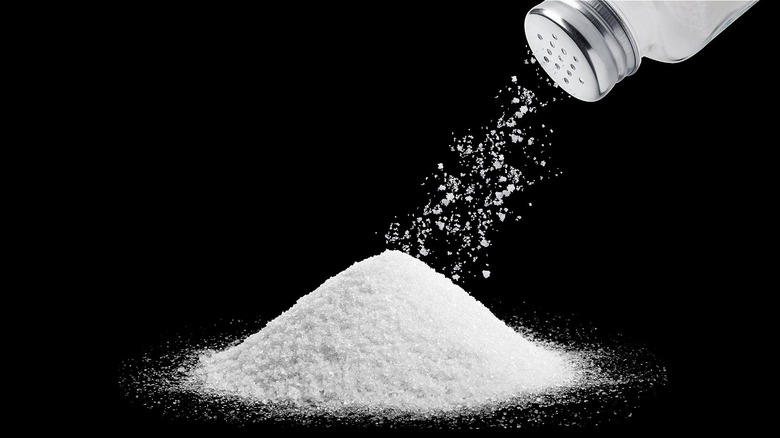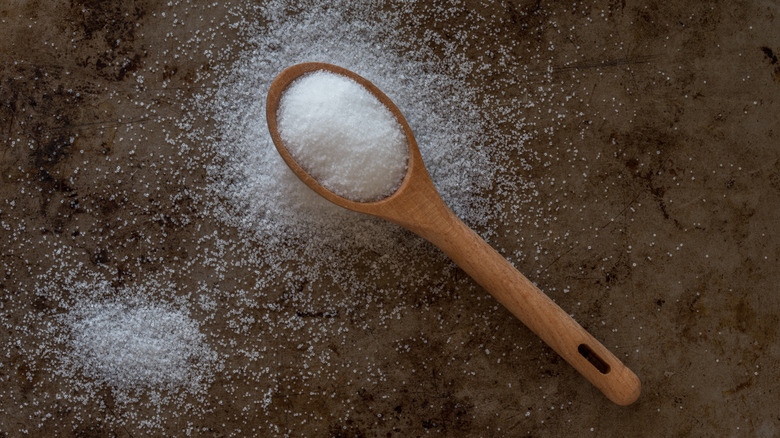The Connection Between Iodized Salt And Brain Health
We mostly think of salt as something we add to our cooking to enhance the flavor or spruce up a dish, but iodized salt, salt with iodine added, is also literally food for thought. According to an article published in Food Science & Nutrition, iodine plays a key role in the brain development of a child as a fetus and as an infant. This is because the thyroid gland needs iodine for the production of thyroid hormones, which in addition to regulating blood pressure, heart rate, and metabolism, help with both brain and bone development.
Moreover, iodized salt protects against a condition called cretinism, which can result in stunted mental growth of a fetus during pregnancy. An iodine deficiency can also lead to difficulty learning in childhood. Unicef states that not receiving adequate levels of iodine in pregnancy or infancy can lower a child's IQ by approximately eight to 10 points. It's an issue affecting nearly 19 million newborns worldwide.
The good and the bad of iodized salt
Increasing iodized salt intake has been one effective way to combat iodine deficiency. There are even recent examples of countries with high rates of iodine deficiency in children, such as Kazakhstan. However, through promotion and advocacy campaigns around using iodized salt, that country was able to turn things around and address the problem in the early 2000s.
The World Health Organization asserts that all salt that is eaten should be iodized or include iodine due to its benefits to brain health and cognitive function. Of course that comes with a caveat to consume salt in moderation, since it contains sodium, and high levels of sodium in a diet elevate the risk of developing high blood pressure, which can lead to conditions like heart disease and stroke.
The majority of the salt in our diets comes from eating processed and packaged foods such as deli meats and chips and crackers, so it's important to check those nutrition fact labels to discern how much sodium is in a product. A little iodized salt is a good thing for our bodies, especially in one's formative years, but too much can be bad for our health down the road.

